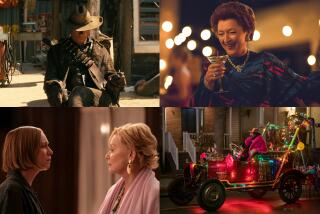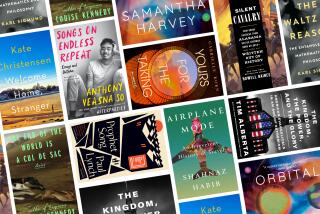Brooklyn Magazine looks at the year in sentences

- Share via
Now, here’s a year-end list I can get behind: “The Year in Great Sentences” -- an annotated selection, over at Brooklyn Magazine, of nine sentences (well, one is more than a single sentence) that remind us why language is often most essential when it is distilled.
It is at the level of the sentence, after all, that we first discover our ideas, our intuitions, that writing begins to reveal itself. “I loved seeing the way my words traveled beyond the pages and became about so much more than what I’d lived, or what I’d felt,” Leslie Jamison observes in a line from her Guardian piece “Confessional Writing is Not Self-Indulgent,” chosen by Jason Diamond.
In addition to Jamison, “The Year in Great Sentences” features Rachel Kushner, Charles D’Ambrosio, Ben Lerner and Heather Havrilesky, whose long riff from an “Ask Polly” column reminds us of the need to step out from underneath the weight of personal history.
“Even though you had to identify the extreme duress of your past and locate the ways in which these traumas formed you,” she writes; “even though you STILL need to be wary of tepid men and intense overbearing people who will use your scars to bend you to their will; even though you will probably ALWAYS, in some tiny corner of your brain, suspect that you’re too [warped] by your circumstances and chemistry and nature to ever be a regular person in the world with an equal shot at happiness as everyone else, you also have to, simultaneously, try to let that stuff go.”
Like the Jamison, that’s a great sentence because it gets at something vivid and important, because it cascades and builds like a piece of music, because it is sharp and specific and embodies a voice, a sensibility and (perhaps most of all) because it leaves us wanting more.
The sentences here have been gathered by a loose panel of readers, including Diamond, Flavorwire Editor in Chief Judy Berman and Hairpin contributing editor Jazmine Hughes. It’s a great idea because it breaks down reading (and, by extension, writing) to its most component essence, in which we consider the minutiae out of which our work gets built.
“Sasha’s birthday fell on a Wednesday, and though her parents gave her a present, its string and paper meant to be torn away at once, almost ten days have passed and still she has not opened it,” Anna Valente writes in the first line of her short story “Latchkey,” selected by Rahawa Haile.
As to what makes such a sentence so effective, Haile explains succinctly: “Cumulative sentences that create dramatic tension right off the bat -- without suffocating the reader, plot, or character with specifics -- are the lottery tickets of the short story world. Euphony only gets one so far.”
Twitter: @davidulin
More to Read
Sign up for our Book Club newsletter
Get the latest news, events and more from the Los Angeles Times Book Club, and help us get L.A. reading and talking.
You may occasionally receive promotional content from the Los Angeles Times.











